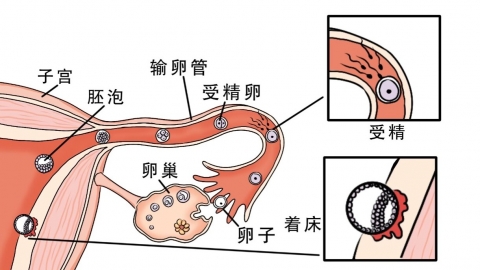Does the basal body temperature drop when the fertilized egg implants?
Generally, whether the basal body temperature drops during implantation of the fertilized egg depends on the individual's physiological condition and hormonal changes. This phenomenon does not occur in all women and is influenced by multiple factors. If there are any concerns, it is recommended to consult a professional physician or use an early pregnancy test to confirm. Detailed analysis is as follows:

In some individuals, during implantation of the fertilized egg, there may be a brief and slight fluctuation in progesterone levels. If the person is highly sensitive to hormonal changes, the basal body temperature may drop slightly by 0.3-0.5°C. This situation usually lasts for 1-2 days, after which the temperature will return to the luteal phase level along with the recovery of progesterone levels. This is considered a normal physiological fluctuation.
If the individual's progesterone secretion is stable without significant fluctuations, or if the sensitivity to hormonal changes is low, the basal body temperature may remain stable during implantation of the fertilized egg, staying at a higher luteal phase level without a noticeable decline. This scenario also falls within the range of normal physiological conditions and does not require excessive concern.
When monitoring basal body temperature, it is important to measure it before engaging in any activity immediately upon waking each morning, ensuring consistency in measurement time, posture, and instruments used to minimize errors. Continuous monitoring for at least one menstrual cycle is necessary to more accurately observe the pattern of temperature changes. If abnormal temperature fluctuations occur along with other discomforts, timely medical consultation and examination are advised to determine the cause.




